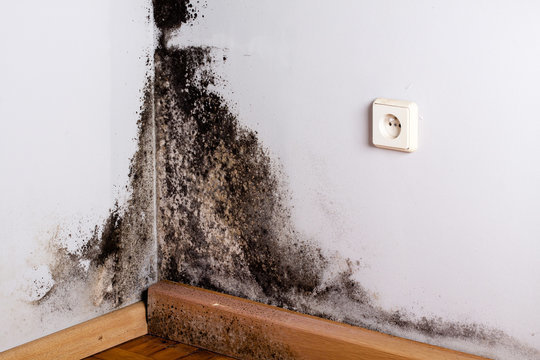
Mold is a naturally occurring fungus that thrives in damp, warm environments, such as homes with water damage, basements, or areas with poor ventilation. While mold plays an essential role in nature by breaking down organic matter, exposure to certain types of mold, particularly indoors, can lead to severe health issues. One of the primary ways to detect the effects of mold exposure is through specialized testing, including blood tests.
What Is Mold Poisoning?
Mold poisoning, also known as mold toxicity or mold illness, occurs when individuals are exposed to mycotoxins—dangerous substances produced by certain molds. While not everyone exposed to mold will develop symptoms, those who are sensitive or immunocompromised may experience a range of symptoms, including:
- Respiratory issues (coughing, wheezing, asthma-like symptoms)
- Skin rashes or hives
- Fatigue and brain fog
- Headaches
- Sinus congestion or infections
- Digestive issues
- Joint pain
Mold poisoning is often underdiagnosed because its symptoms mimic many other conditions, which is why proper testing is essential to confirm exposure.
How Blood Tests Can Detect Mold Poisoning
Blood tests are one of the most effective ways to determine if you have been exposed to mold and if your body is reacting negatively. At Tulsi Wellness Club, we emphasize the importance of comprehensive testing for our clients, especially if mold exposure is suspected. Here’s how mold poisoning blood tests work:
Mycotoxin Testing
This specialized blood test detects the presence of mycotoxins in the body. Mycotoxins are toxic byproducts produced by certain types of molds. A high level of mycotoxins in the blood indicates that your body has been exposed to and is reacting to mold. This test is highly specific and is a key indicator of mold toxicity.
IgE and IgG Antibodies for Mold
When your body is exposed to mold, it may develop an immune response, which includes producing antibodies. Blood tests that measure immunoglobulin E (IgE) and immunoglobulin G (IgG) antibodies can help determine if your immune system is reacting to mold exposure. Elevated levels of these antibodies may indicate an allergic response or a longer-term exposure to mold.
Inflammation Markers for Mold
Mold exposure can cause systemic inflammation in the body. Blood tests that measure inflammatory markers, such as C-reactive protein (CRP) or erythrocyte sedimentation rate (ESR), can show if your body is under stress from a toxic exposure like mold. Chronic inflammation from mold can lead to a range of long-term health issues if left untreated.
Cytokine Panel for Mold
Cytokines are signaling proteins released by the immune system in response to infections or toxins. In mold toxicity, the body may overproduce certain cytokines, leading to chronic inflammation and immune dysregulation. A cytokine panel test can reveal an imbalance in these proteins, which may indicate an ongoing immune response to mold.
Why Get Tested for Mold Poisoning?
At Tulsi Wellness Club, we prioritize functional medicine approaches to health, meaning we look at the root causes of illness, not just the symptoms. If you suspect mold exposure, a blood test can be a crucial step in identifying and addressing the issue before it leads to chronic health problems. Mold poisoning can disrupt various systems in the body, and without intervention, it may lead to long-term health consequences, such as:
- Chronic respiratory issues
- Autoimmune disorders
- Neurological symptoms
- Hormonal imbalances
- Persistent fatigue
Early detection allows us to create a personalized treatment plan, which may include detoxification protocols, immune support, and lifestyle changes to reduce further exposure.
What to Expect After Mold Testing
If your blood test reveals that you have been exposed to mold, don’t worry—healing is possible! At Tulsi Wellness Club, we will guide you through a holistic recovery process, including:
- Detoxification protocols: We focus on safe methods to help your body eliminate mycotoxins.
- Nutritional support: We ensure that your body receives the nutrients it needs to combat inflammation and support immune function.
- Environmental assessment: It’s crucial to remove the source of mold in your home or workplace. We offer guidance on mold remediation strategies and air quality improvement.
- Immune support: Strengthening the immune system with supplements and therapies tailored to your needs is key to recovery.
Conclusion
Mold poisoning is a serious but often overlooked health concern. If you’ve been experiencing unexplained symptoms, especially after exposure to damp or water-damaged environments, it’s essential to get tested. Blood tests for mold toxicity offer crucial insights into how your body is coping with exposure, allowing for effective treatment and recovery. At Tulsi Wellness Club, we are committed to helping you identify and overcome mold toxicity, so you can live a healthier, more vibrant life.
If you suspect mold exposure, reach out to us today to learn more about testing and treatment options. Your health is our priority, and we’re here to help you on your journey to wellness.
Dr. RD Marquiss
Contact Me


